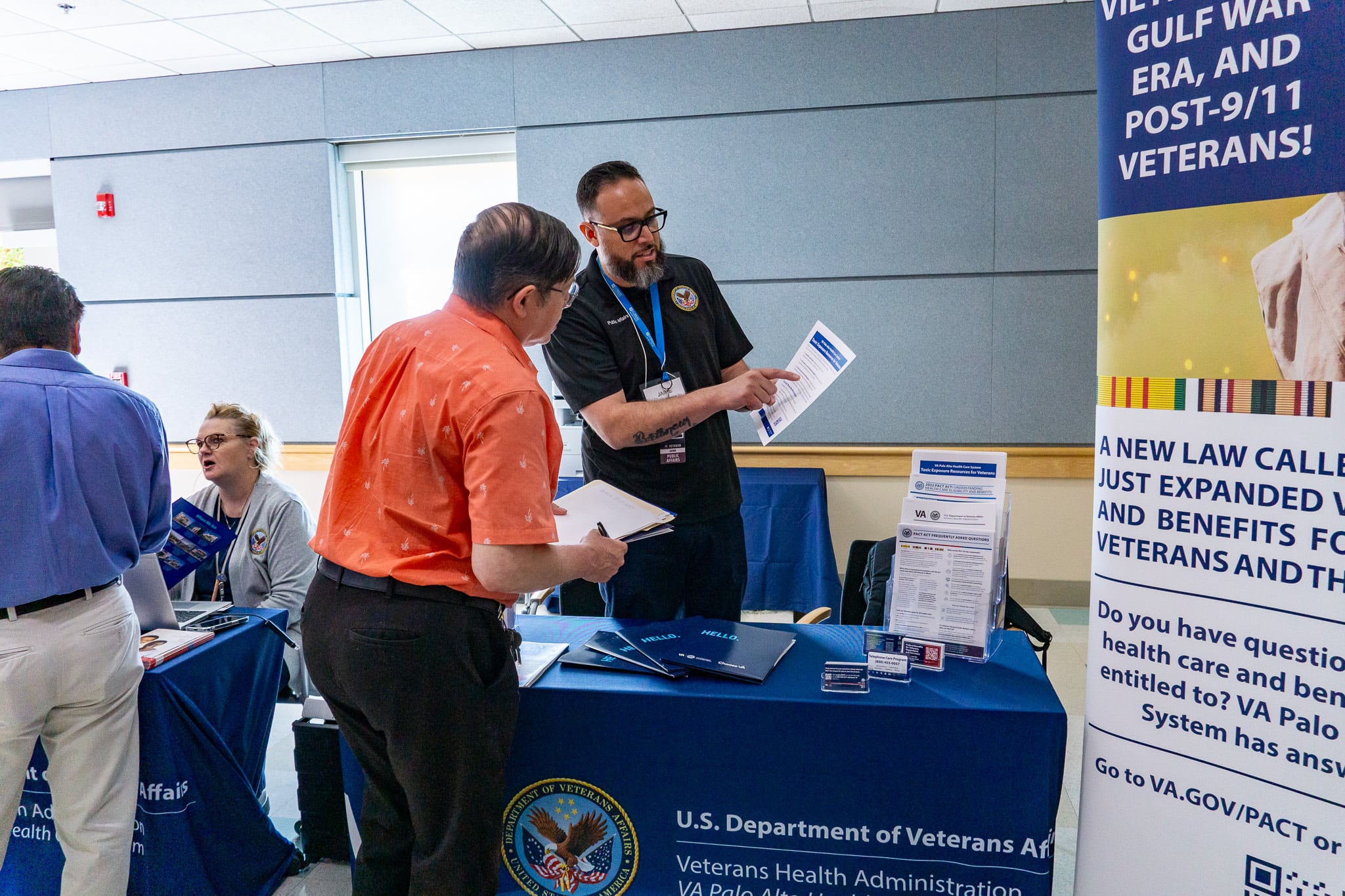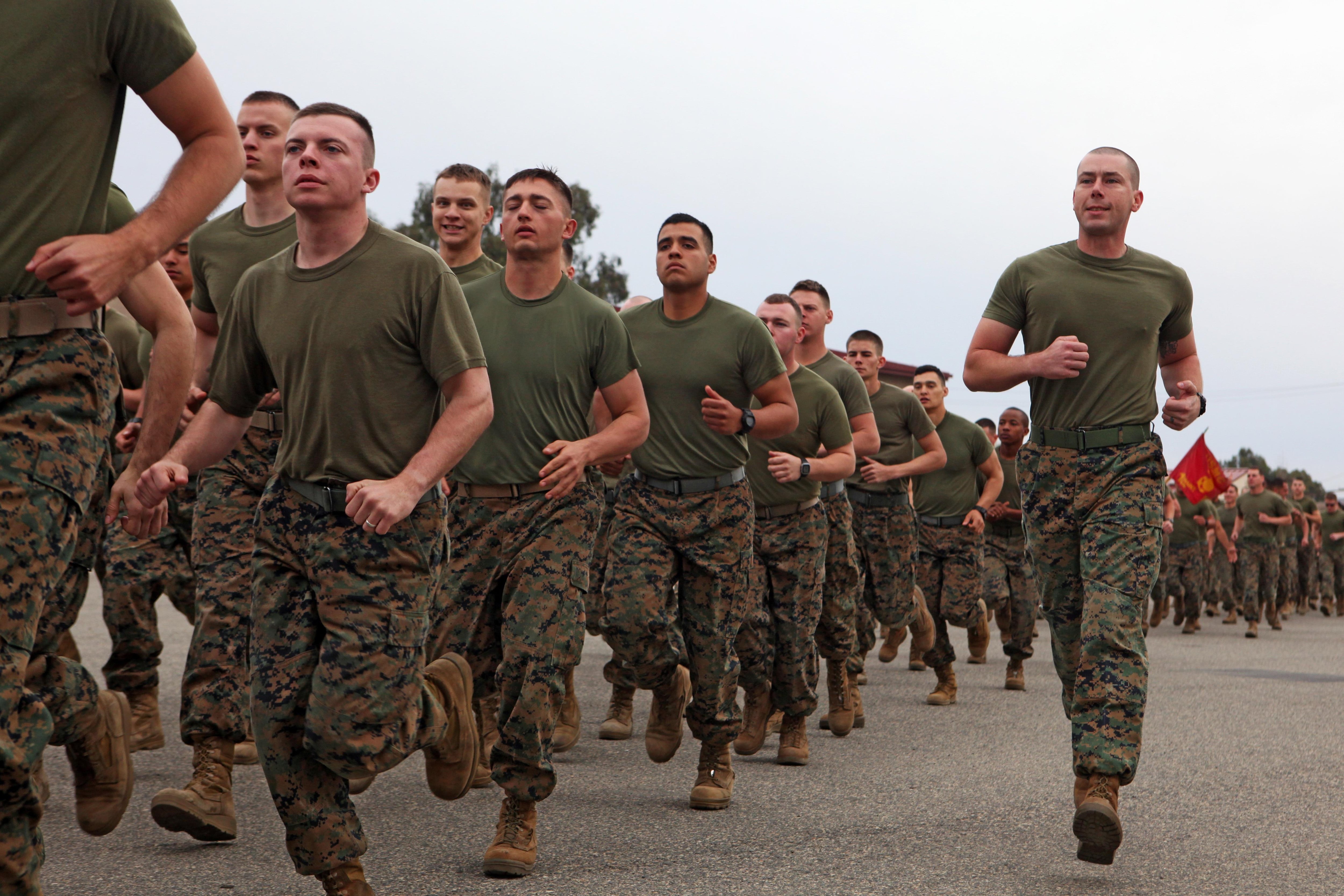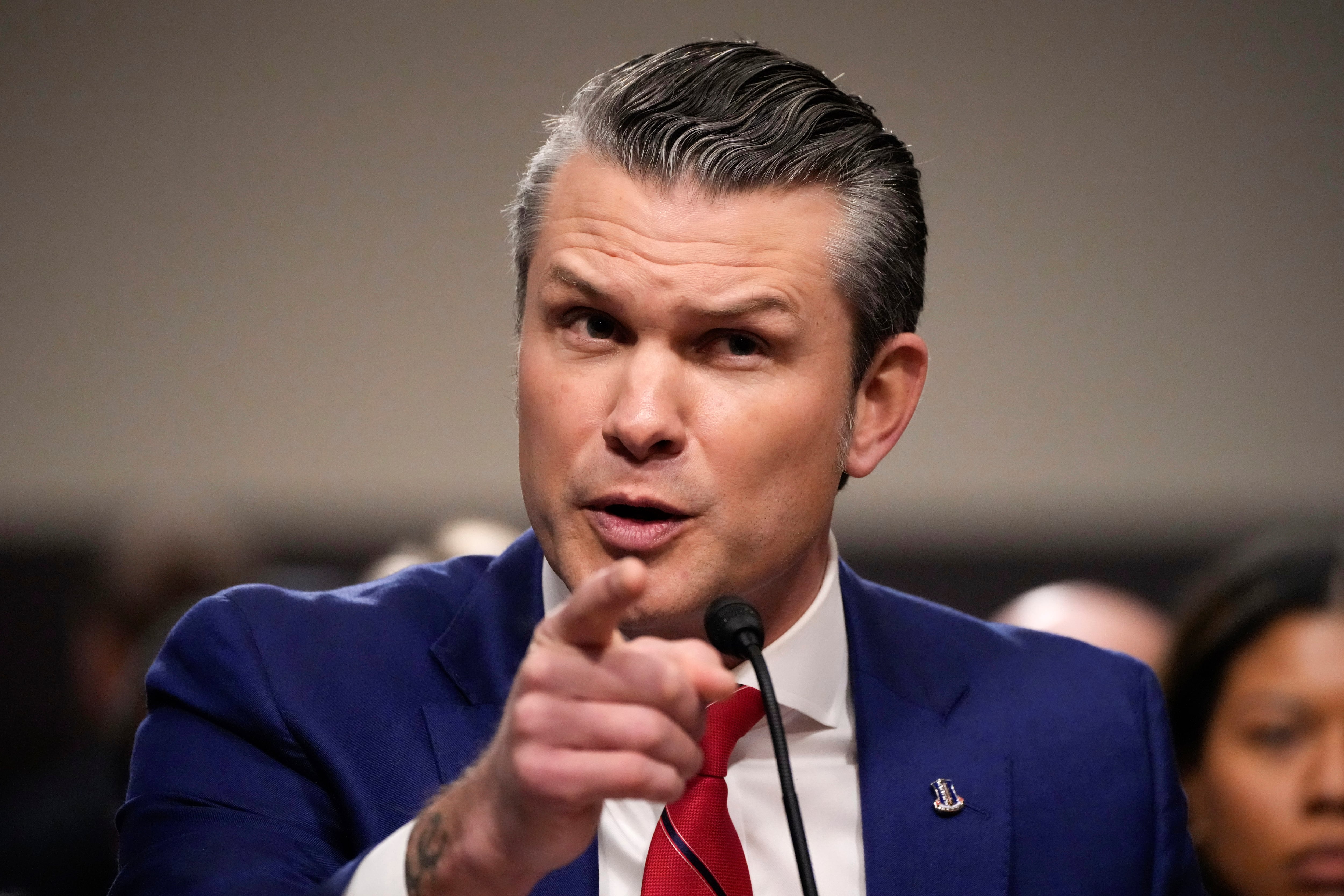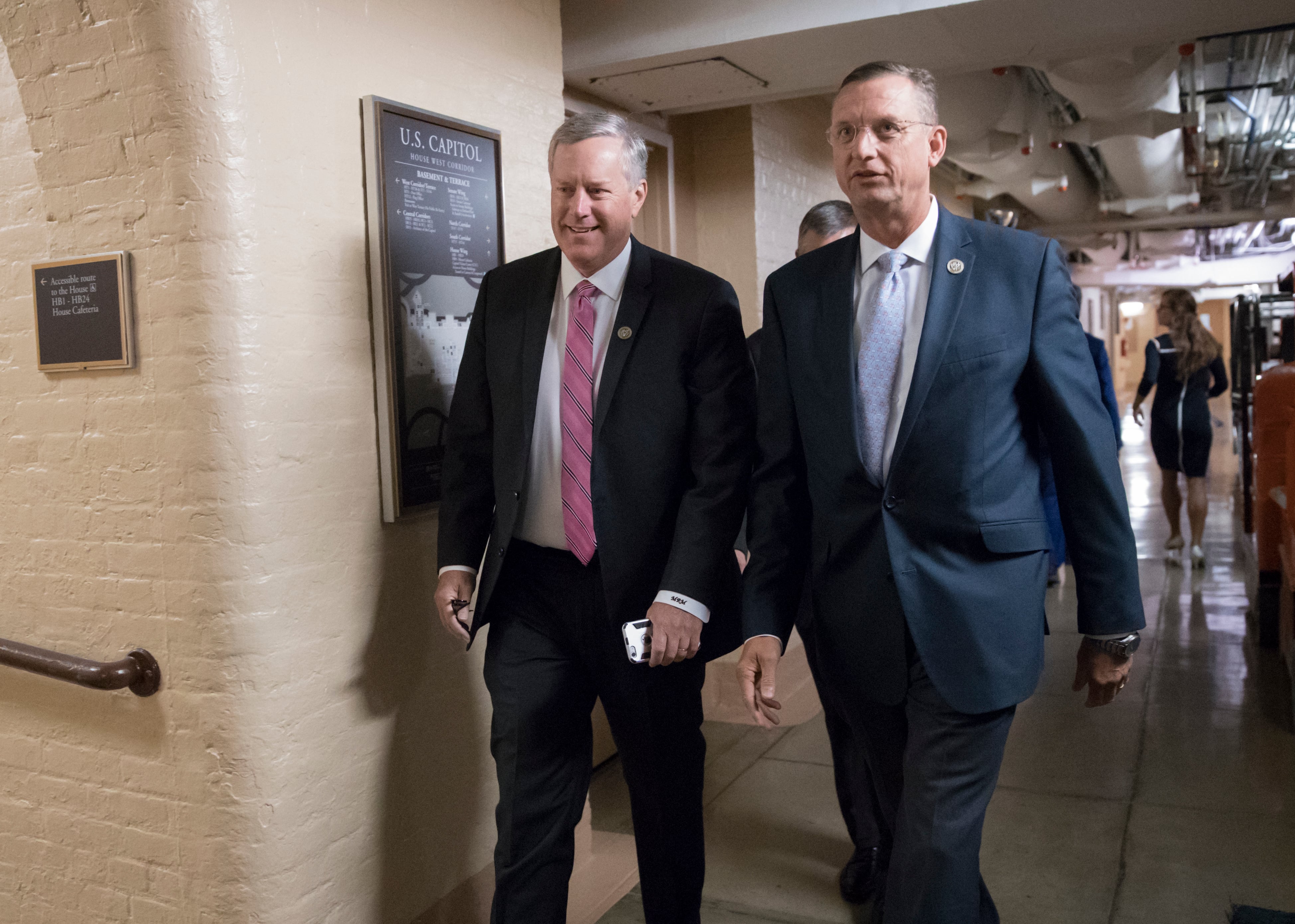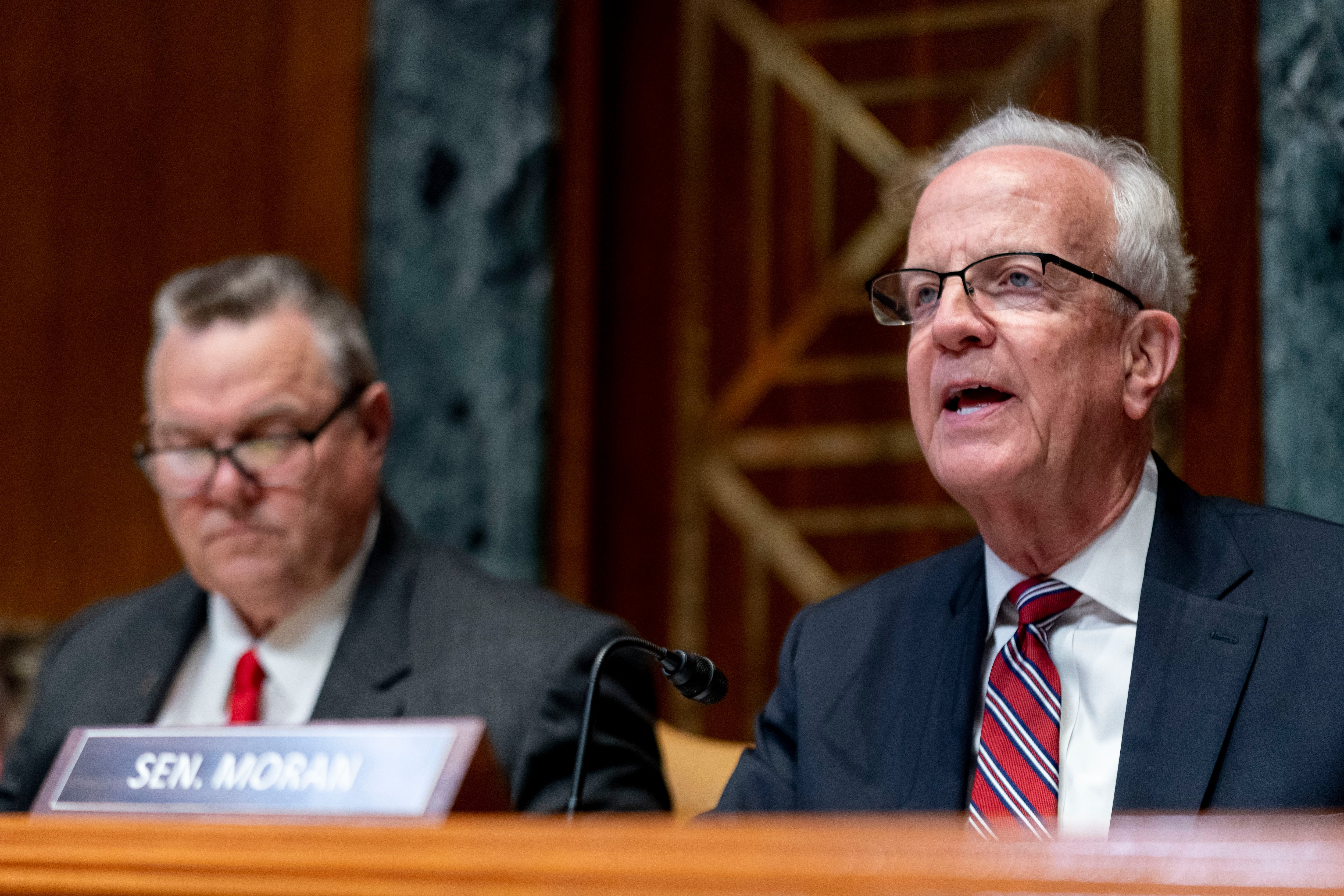HEMEIMEEM AIR BASE, Syria — Helicopter gunships sweep low around Russia's air base on the Syrian coast and long-range air-defense missile systems tower at the base's edge as warplanes take off one after another. The sound is deafening.
Russia's heavy airstrikes in Syria continued Wednesday, days ahead of the hoped-for start of talks on how to end one aspect of the country's five-year-old war, where government forces fight rebels, and militants including the extremist Islamic State have seized substantial stretches of territory.
Even though the front line is dozens of miles (kilometers) away and the area around the base is tightly controlled, the Russian military methodically patrols to make sure there is no ground threat. Soldiers toting assault rifles stood guard around the base as air force personnel bustled under the warplanes wings, attaching bombs and missiles for the next sorties.
Since Russia launched its bombing campaign in Syria on Sept. 30, its warplanes have flown over 5,700 missions. The number is remarkable for a force comprising just a few dozen warplanes.
The Russian military brought a group of Moscow-based reporters to the base Wednesday to see the operation. Defense Ministry spokesman Maj. Gen. Igor Konashenkov said, by the afternoon, Russian warplanes had flown about 40 sorties, with each aircraft typically hitting three to five targets on a single run. In the early stages of the bombing campaign, planes struck only one target during each mission.
Combat sorties continued after nightfall at the same high tempo, with speeding jets lighting up the night sky with their engine exhausts.
Since The Associated Press first visited the Hemeimeem base in October, the Russian military has put a second runway into service and has deployed powerful S-400 air defense weapons. Asked how long the Russian air campaign may last, Konashenkov said only that Russia's goal is to strike extremist infrastructure in support of Syrian government troops.
"They have shown some good results in defeating terrorist groups," he said.
The Russian military has insisted it is targeting the Islamic State group and other extremists and has angrily dismissed Western accusations that it is hitting moderate rebels fighting Syrian President Bashar Assad. Moscow also has rejected claims that its aircraft have hit civilians, insisting that all casualties have been at extremist facilities away from populated areas.
Konashenkov said Syrian government forces backed by Russian airstrikes have retaken about 250 villages and towns from the extremists. He said each bombing target is verified through multiple intelligence sources and every fifth target Russia hits is now chosen thanks to information from "patriotic" opposition forces.
Konashenkov said one particularly successful strike was conducted Tuesday in Aleppo province, where a Russian Su-34 bomber hit a meeting of extremist leaders.
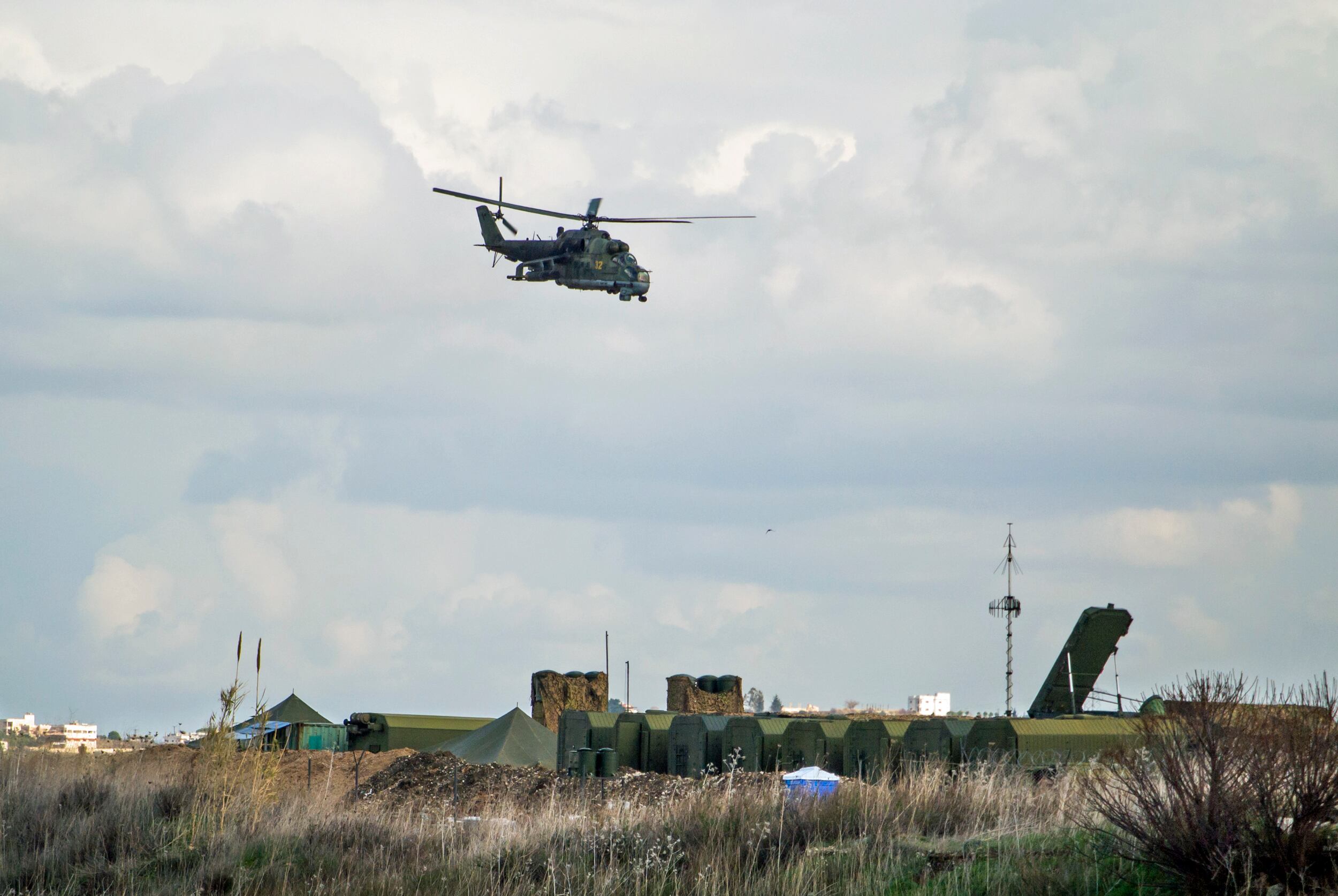
A Russian helicopter gunship flies on patrol while air defense missile systems are seen in the background, bottom, at Hemeimeem air base on Jan. 20, 2016, in Syria.
Photo Credit: Vladimir Isachenkov/AP
Russian ordnance includes bunker-buster bombs capable of piercing seven meters (23 feet) of rock to destroy underground facilities, Konashenkov said. Some of the bombs are laser-guided, but all Russian warplanes at the base are equipped with a sophisticated targeting system, allowing them to use even regular bombs with pinpoint accuracy, he said.
British Defense Minister Michael Fallon on Wednesday once again raised Western concerns about civilian deaths as a result of the Russian air strikes.
"I am very concerned at the number of civilian casualties through the use of unguided munitions — seems to be several hundred casualties now," he said in Paris during a meeting of Western defense ministers on how to combat the Islamic State group. "We've seen Russian strikes on opposition forces, on towns and villages, particularly in the south of Syria, which is simply prolonging the Syrian war, propping up Assad and is actually delaying the day on which we can all unite and properly get Daesh (Islamic State) out of Syria."
Konashenkov dismissed such claims as "absolute lies," saying that their authors have failed to provide proof.
Across the tarmac, Russian soldiers loaded humanitarian supplies onto a hulking Il-76 heavy transport plane to be parachuted over the Syrian city of Deir el-Zour, where government-held areas of the city have been blockaded by extremists for more than a year. The United Nations says living conditions there have deteriorated significantly, with reports of up to 20 deaths because of malnutrition.
Konashenkov said more than 50 metric tons of relief supplies have been delivered to Deir el-Zour in precisely targeted airdrops. The Syrian government controls the military airport in the city, and activists say the limited amount of aid that gets in typically goes to army officers and their friends who sell it on the black market.
The Syrian government and the opposition are to open talks Monday in Geneva. The negotiations are meant to pave the way for a political settlement for Syria, with a new constitution and elections in a year and a half.
But international negotiators, including the United States and its allies and Assad's backers, Russia and Iran, have failed to agree on which of the myriad Syrian militant groups should be part of the political talks. Russian Foreign Minister Sergey Lavrov and U.S. Secretary of State John Kerry met in Switzerland on Wednesday to try to resolve the differences.
The most remarkable new weapon added at the Hemeimeem base since October is presence of the S-400 air defense systems. Russia deployed the powerful weapons, capable of hitting targets 400 kilometers (240 miles) away, after Turkey shot down a Russian warplane along the Syrian border on Nov. 24.
Turkey said it downed the Russian jet after it violated its airspace for a few seconds, while Russia insisted its plane had stayed within Syrian airspace. It was the first time in more than half a century that a NATO nation had shot down a Russian plane.
The Russian military quickly sent the S-400s to the base and warned that it would fend off any threat to its aircraft. Moscow also punished Turkey by imposing an array of economic sanctions, including a ban on package tours.
To augment the air defenses, Russia has kept a navy ship carrying long-range air defense missiles off the Syrian shore and Russian fighter jets have begun escorting strike jets to fend off any air threat.
Milos Krivokapic in Paris contributed to this report.

